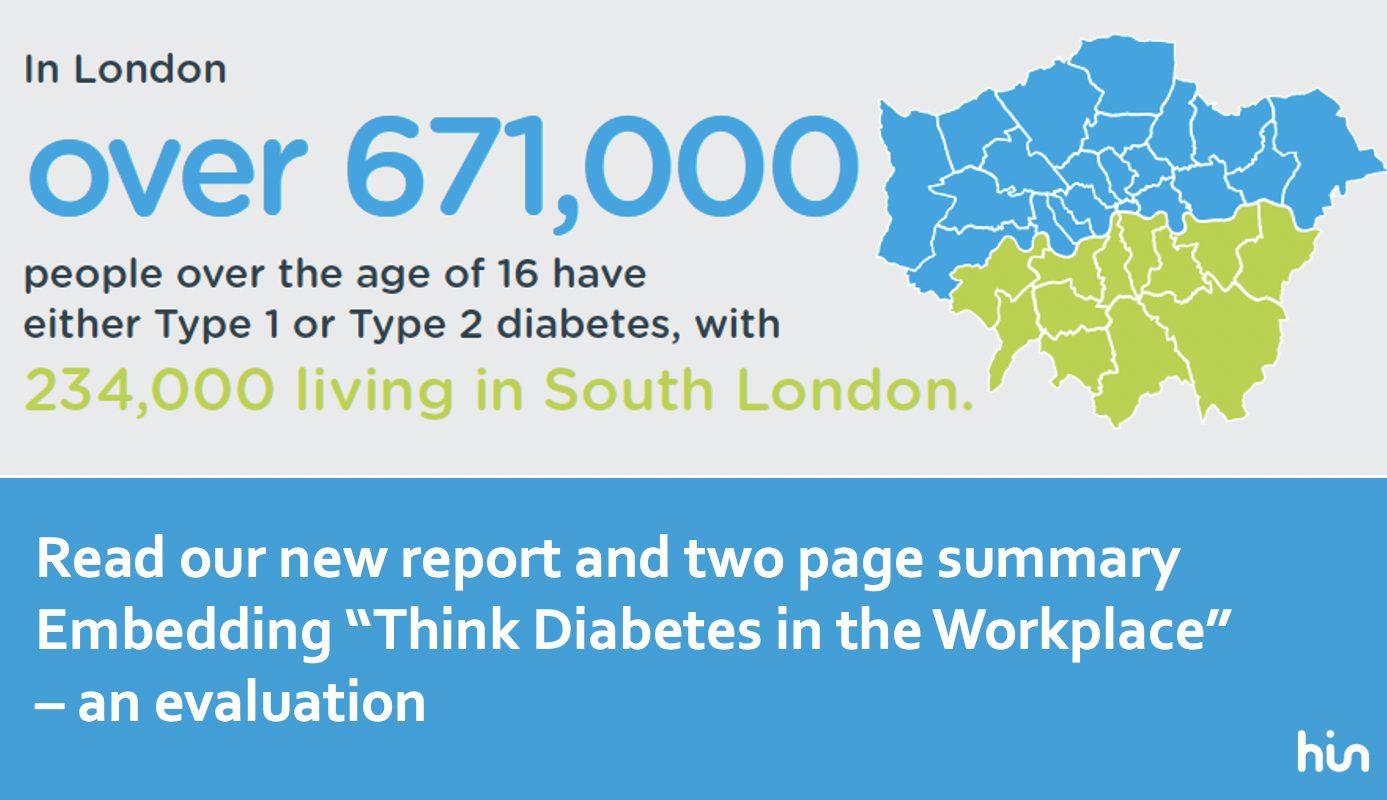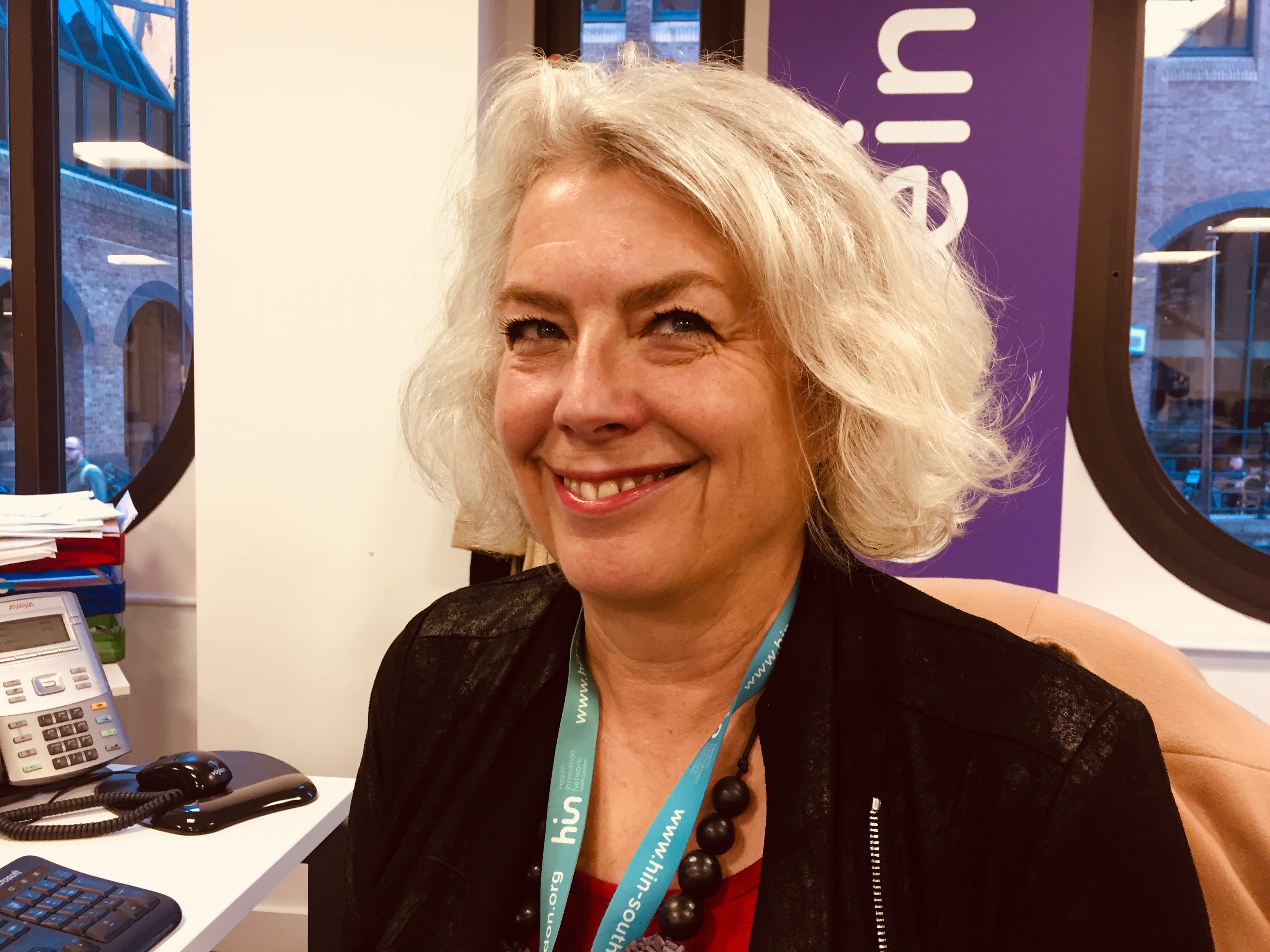Two major London employers embedded clinically-proven Structured Education for Type 1 diabetes to tackle one of London’s biggest health challenges.
The stats
671K Londoners live with diabetes and employers in the capital lose an average £250K due to ill health each year.
An initiative with two major London employers has shown that face to face and virtual diabetes education can be successfully embedded into the workplace to improve the health of staff with Type 2 diabetes.
This comes as the NHS faces increased pressure due to the condition with over 671,000 Londoners living with diabetes and employers in the capital losing an average £250,000 due to ill health each year.
An evaluation of a project by the NHS’s Health Innovation Network with the London Ambulance Service and Transport for London (TfL) has found significant behaviour change in staff toward healthier lifestyle and eating.
Over 60 staff members from the employers attended either online or face to face structured education courses, which is recommended as a vital part of care for people with Type 2 diabetes by the NHS’s clinical standards guardian National Institute for Health and Care Excellence (NICE).
Structured Education (SE) is clinically proven to help people living with diabetes to make changes to their diet and lifestyle that help them to self-manage their condition. It also offers peer support after being diagnosed with the life-changing condition.
Staff were offered a choice to attend a course delivered remotely either by Second Nature or Oviva, which both offer programmes for people with Type 2 diabetes ranging between eight and 12 weeks. Course sessions were delivered through a trained coach with access to online advice, support and information which participants could access through their phones, tablet or computer.
An in-house session to improve self-management was delivered by trained diabetes education experts from Kingston Hospital NHS Foundation Trust. They delivered face-to-face group education using the DESMOND Type 2 Management Module, used widely across the NHS, for up to 14 people in a one-day session and a variety of resource materials were provided to participants at the session.
Twenty five staff members completed the Oviva programme and clocked up an average weight loss after eight weeks of 2.3kg, with evidence showing that participant weight loss continues up to 12 months after the programme.
For the 37 staff who completed the Second Nature programme, the average weight loss after three months was 5.7kg.
Staff taking part in this evaluation overwhelmingly welcomed the offer, and to attend, SE courses at their workplace. There was also very high approval of the three programmes from participants. Those completing either the in-house DESMOND programme or one of the remote programmes said their diabetes education needs had been met.
TfL staff who made use of the programmes said: “I think it’s a good thing that TfL are actively promoting this sort of thing. It’s a positive thing in terms of awareness around health and the impact of different health conditions. It’s good that workplaces are doing more to make people aware [of people with different health needs].”
“It’s a powerful message to send to the employee: we’re not just interested in your productivity, but also your health and how to look after yourself.”
TfL was due to start another round of the programme in September 2020 but brought it forward to May. TfL’s Health and Wellbeing Improvement Programme Manager Fernanda Siusta said:
“It was great to be involved in this work which has had such a positive effect on so many participants’ lives. While the pandemic led us to bringing the work forward, we know that for some this has been key to ensuring they stay on track if they had to shield or if they were unable to see their usual medical teams while the NHS handled the response to coronavirus.”
Head of Healthy Workforce at London Ambulance Service Gill Heuchan said:
“As someone with type 2 diabetes I know how difficult it can be when you are first diagnosed and have to attend diabetes education courses. We started the initiative at London Ambulance Service because we are very aware that we have staff whose lives do not fit the norm. Call handlers, medics and support staff are often working busy 12-hour shifts and during unsociable hours, so they can find it even harder to attend courses on learning how to manage their diabetes.
“It has been a fantastic opportunity for staff to have flexible support, not just about diabetes, but about lifestyle choices and general health on a tablet device, which they can utilise easily to fit their lifestyle. Staff who have signed up have fed back positively and many have been able to achieve personal goals because of the support they have received. This initiative has also helped form part of our ‘Wellbeing at Work’ support package for staff which aims to help them manage their own health and wellbeing in and outside of work.”
“We started the initiative at London Ambulance Service because we are very aware that we have staff whose lives do not fit the norm. Call handlers, medics and support staff are often working busy 12-hour shifts and during unsociable hours, so they can find it even harder to attend courses on learning how to manage their diabetes ”Head of Healthy Workforce at London Ambulance Service Gill Heuchan
Health Innovation Network Diabetes Programme Manager Rod Watson said:
”Diabetes is one of our biggest health challenges. Not only is it a leading cause of premature mortality with over 22,000 additional deaths each year, but it doubles an individual’s risk of cardiovascular disease and costs over £10 billion every year to manage.
“The HIN has successfully sped up the spread and adoption of a range of evidence-based programmes both face to face and digital to help prevent and treat the condition.
“We spend a third of our time at work so it makes sense for us to work with employers to help embed programmes directly into the workplace. This project shows that this is possible and I would urge all employers to read through our findings.”
More information
Click on the button below for the report and two page summary.
Explore the reports now
